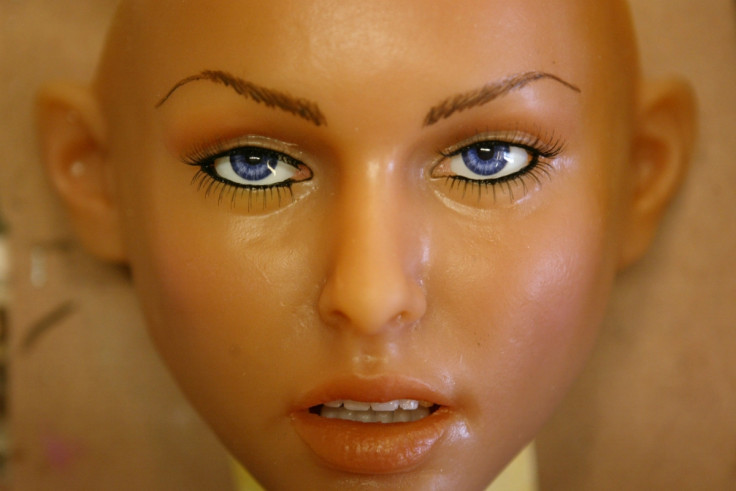Rise of the sexbot: By 2050, sex with robots will be more common than with humans

Virtual sex and copulating with robots will be popular among high-income households by 2030, according to a report. Futurologist Dr Ian Pearson has released a study looking at the future of the sex industry, which highlights the dramatic increase in spending on sex toys that will account for over £1bn ($1.5bn) in the UK market.
"The sex market in 20 years could be three times bigger than today and seven times bigger by 2050," he said. Many people are horrified at the idea of sex with inanimate objects but Pearson points out robotic sex toys such as vibrators have been used for centuries and sex with robots is the next step forward.
He suggests that when robots become more lifelike, people will be less put off by having sex with them. Pearson said: "A lot of people will still have reservations about sex with robots at first but gradually as they get used to them, as the AI and mechanical behaviour and their feel improves, and they start to become friends with strong emotional bonds, that squeamishness will gradually evaporate."
"While some people will enthusiastically embrace relationship-free robot sex as soon as they can afford one, as early as 2025, it won't have much chance of overtaking sex with humans overall until 2050," he added in a Telegraph report. Pearson released the study in partnership with Bondara, one of the UK's leading sex toy shops.
While some people will enthusiastically embrace relationship-free robot sex as soon as they can afford one, as early as 2025, it won't have much chance of overtaking sex with humans overall until 2050
But not all robot manufacturers are in favour of their products being used in this manner. The makers of Japanese robot Pepper issued a warning, saying using it for "sexual purposes" breaks the rental agreement after people hacked its software to give it "virtual breasts".
However, David Levy, author of Love And Sex And Robots, says he is "absolutely convinced" sex with robots is a positive thing for people who do not have satisfactory relationships. He argues they could be a cure for child sex abusers by helping to "wean" paedophiles off having sex with children.
"For whatever reason there are huge numbers of people who just don't have a relationship with someone they can love and someone who can love them," he said. "For people like that, I think that sex robots will be a real boon. It will get rid of a problem they've got, fill a big void in their lives and make them much happier."
In November, Levy and Professor Adrian Cheok will chair the second international congress on Love and Sex with Robots, which takes place in Malaysia. The event will be a focus for academics from around the world to discuss the legal, ethical and moral questions on everything from "teledildonics" to "humanoids". Also on the agenda are robot emotions, entertainment robots and intelligent electronic sex hardware.
Cheok, a professor of Pervasive Computing at London's City University, has been refining a device called a Kissinger, a set of pressure-sensitive artificial lips that can transmit a kiss from a real mouth to a similar device owned by a partner who might be many miles away. "I believe it is going to be perfectly normal that people will be friends with robots, and that people will have sex with robots," Cheok said. "All media will touch humanity."
There is even the possibility of marrying sex robots. Matt McMullan, creator of RealDoll, which has a poseable PVC skeleton with steel joints and silicone flesh, says a few clients have attempted to legally marry the doll, which is manufactured by Abyss Creations. "I don't know that the marriage was actually legally binding, but ceremonies have taken place."
But robotics ethicist Dr Kathleen Richardson does not hold with the view that the development of adult and child sex robots will have positive benefits. In a research paper, she examines the model of asymmetrical "relationship" that is imported from prostitution-client sex work to human-robot sex. She recently launched the Campaign Against Sex Robots with Dr Erik Billing.
"We challenge the view that the development of adult and child sex robots will have a positive benefit to society, but instead further reinforce power relations of inequality and violence," said Richardson.
"We take issue with those arguments that propose that sex robots could help reduce sexual exploitation and violence towards prostituted persons, pointing to all the evidence that shows how technology and the sex trade coexist and reinforce each other creating more demand for human bodies."
© Copyright IBTimes 2025. All rights reserved.






















